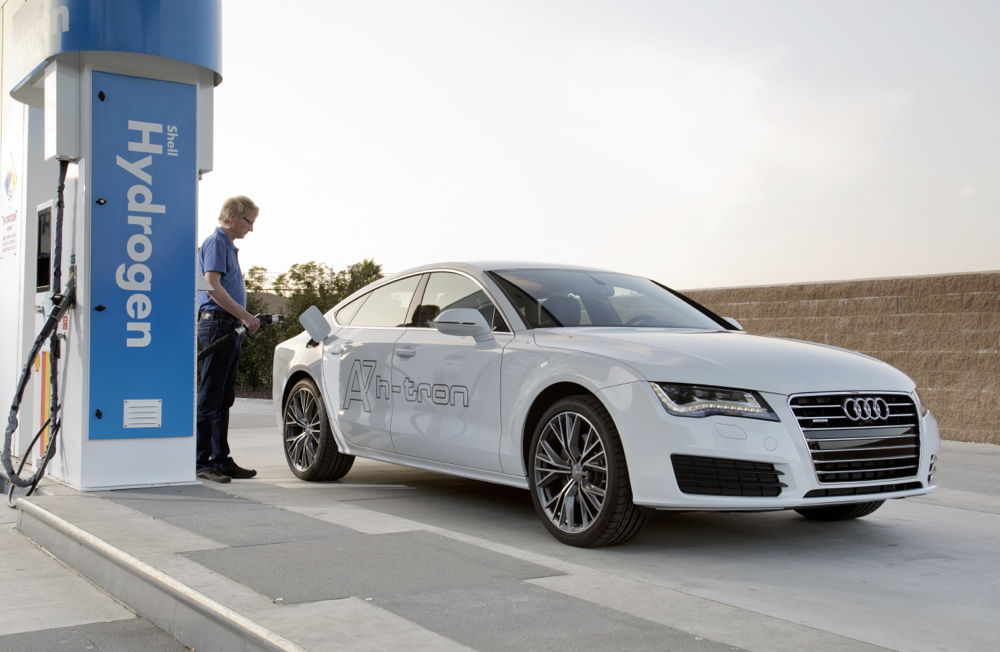As other automakers back away from hydrogen fuel cells, Audi appears to still be in the game.
Ballard Power Systems, a manufacturer of fuel cells for commercial applications, announced Monday a new fuel-cell stack developed in concert with Audi. The FCgen HPS stack is designed for light, medium, and heavy-duty vehicles, according to Ballard.
The company said it currently holds the right to use this fuel-cell stack in a variety of applications, including rail, marine, construction, and aerospace. It recently signed a non-binding memorandum of understanding with Audi to expand its usage rights to include commercial trucks and passenger cars.
Audi hasn’t discussed any plans for fuel-cell production cars recently, but it previously built a small demonstration fleet of fuel-cell A7 fastbacks.
Most other automakers that previously showed an interest in fuel-cell passenger cars have shifted focus recently.

Audi A7 h-tron quattro
Mercedes-Benz earlier this year halted fuel-cell development for cars, although it continues with commercial truck potential for its parent Daimler AG.
General Motors said earlier this year that it would also back away from using hydrogen fuel cells in passenger vehicles, although it has promise for commercial and military applications.
Other automakers are mostly aligned with this philosophy. While Hyundai has big plans for a hydrogen society, and it’s the top seller of hydrogen vehicles, it’s struggling to expand availability in the United States due to the limited infrastructure.
However, BMW has continued its fuel-cell investment. The German automaker is borrowing hydrogen tech from Toyota for a low-volume fuel-cell version of its X5 SUV, scheduled to start production in 2022.
Toyota is looking at commercial-vehicle applications for fuel cells, but it’s also planning a second-generation Mirai sedan with sleeker styling and a 400-mile range.